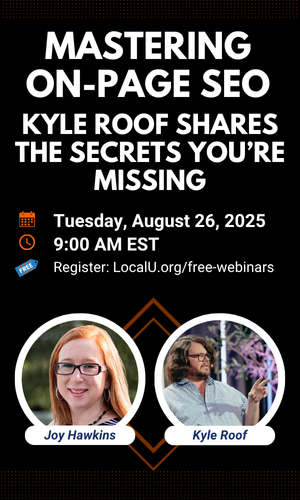- Joined
- Jan 16, 2013
- Messages
- 25
- Reaction score
- 1
I'm wondering if there is any data available on how many people conduct a branded search vs. a location-based keyword search.
For example, when someone needs a plumber, what percentage of people search for a specific plumber (e.g., joe's plumbing columbus oh) vs. doing a local search (plumber columbus oh)?
The only information I could find is a Wordstream slideshare presentation showing how less than 3% of their traffic comes from branded searches. But I'm not sure if they're implying 3% is the average or that's just for their brand.
If anyone has some information, I'd appreciate it. Thanks!
For example, when someone needs a plumber, what percentage of people search for a specific plumber (e.g., joe's plumbing columbus oh) vs. doing a local search (plumber columbus oh)?
The only information I could find is a Wordstream slideshare presentation showing how less than 3% of their traffic comes from branded searches. But I'm not sure if they're implying 3% is the average or that's just for their brand.
If anyone has some information, I'd appreciate it. Thanks!




